Education in Austria
Austrian universities and schools have top positions in world rankings. Read in our article what is required for admission to schools and universities of Vienna.
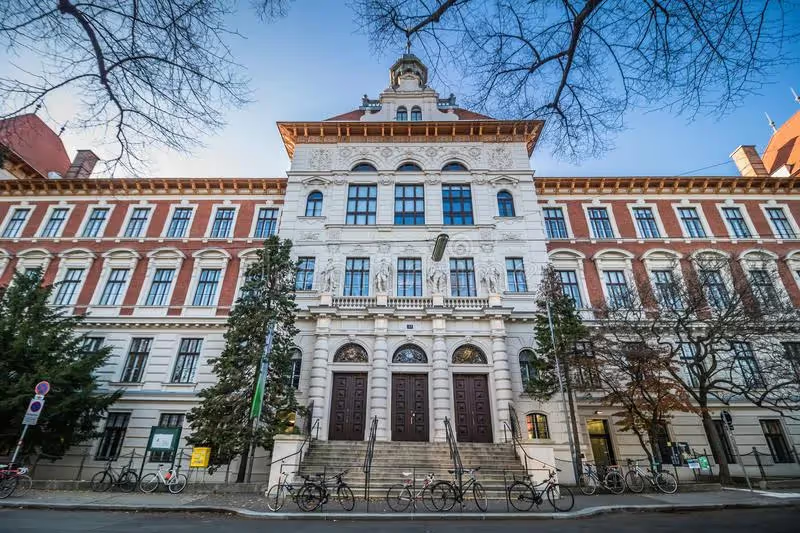
Expats in Vienna can obtain secondary and higher education free of charge if they enroll in public educational institutions. Foreigners often choose international and public schools to send their children to, however the prices depend on the particular educational institution and range on average from EUR 5,000 to EUR 60,000 per annum. In public universities, Austrians and foreign students who are EU citizens, can study for free. Tuition fees at public universities for those from other countries are approximately EUR 1,500 per year, and private universities range from EUR 3,000 to EUR 35,000 or higher.
IMPORTANT: Luxury Immobilien GmbH only provides services for buying, renting and selling real estate in Vienna and other federal states of Austria. You can also get legal advice concerning investments in Austrian real estate, starting a business or obtaining a residence permit.*ALL THE FOLLOWING INFORMATION IS FOR INFORMATION PURPOSES ONLY.
Secondary Education in Vienna: Costs for immigrants in 2023
In Vienna, as in Austria in general, there are 3 types of schools: public, private and international. Education in public schools is free of charge not only for Austrian citizens but also for children of expats.
Primary and secondary education (up to 9th grade, or 15 years of age) is compulsory in Austria. Children aged 6 to 10 attend Volksschule or Grundschule (Grades 1 to 4), and then at the age of 10 or 11 the child will switch from primary school to secondary school. After this they may choose an academic school (Allgemeinbildende höhere Schule) or a vocational secondary school (Mittelschule, MS).

In general, free public schools in Austria offer high quality education, but it is essential for expats to take into account that classes are held in German. The Vienna Bilingual Schooling (VBS) project has been running in the Austrian capital since September 1997. Within the framework of the VBS, some state schools provide free education in English and German. But due to the limited number of these schools and the high demand, there are not enough places for everyone. In Vienna these include the VBS Scheibenbergstraße in the 18th district of Vienna and the Marie Jahoda School. Immigrants can choose to send their children to private schools, international schools or even home schooling.
As of the beginning of 2023, it costs at least EUR 5,000 per year for a child to attend a private or international primary school. This does not include additional costs such as meals, participation in events, etc. The costs of international day schools can reach an average of EUR 40,000 per school year, while the costs of boarding schools amount to EUR 60,000.
Note: If you have decided to move to Austria as a family, we recommend reading this article about the cost of living in Vienna in 2023.
We have made a selection of the best international schools in the Austrian capital, most of which offer the International Baccalaureate (IB). Classes are mostly taught in English.
Amadeus International School Vienna
AMADEUS International School Vienna is an IB World day and boarding school with an integrated Music and Arts Academy, which has been in operation since 2012. The institution offers academic training in International Baccalaureate programmes for children aged 3–18 years, which is combined with innovative music and art education. In 2021, AMADEUS International School Vienna became the first school in Austria to offer the IB Career-related Programme (IBCP), which is a programme combining academic and professional training — and the first school in Europe to offer the Pearson BTEC International Diploma in Music (an extended diploma, which confirms professional training as a musician). In 2022, the school was ranked among the top 100 schools in the world by Spear's Schools Index, compiled in partnership with Carfax Education.
Over 450 students from over 50 nationalities will be educated here in the academic year of 2022–2023. The cost of day school depends on the age of the student, among other factors, and ranges from EUR 18,240 to EUR 29,905 per year. This price includes, among other things, payment for textbooks and study materials, rental of a MacBook/Macbook Air, day trips around the curriculum, participation in extracurricular activities and other activities, as well as school lunches and the services of the school doctor.
The boarding fee (including day school attendance) is EUR 46,880–EUR 52,350 per year. Additionally, parents will have to pay an extra fee for enrolling their child, as the school entrance fee is between EUR 2,040–3,040, as well as a security deposit of EUR 1,500–3,000, a school deposit of EUR 2,000–4,000, and EUR 350 for the application. There is also a charge of EUR 500 for school uniform and the transfer fee (if applicable).
At the same time, AMADEUS International School Vienna offers benefits for families with several children. For the school year of 2022-2023, the discount for the second child is 10%, whilst a 5% discount is applicable for the third and each subsequent child. Outstanding students may qualify for a scholarship, which is awarded by the selection committee. For example, Academic Scholarships, which cover tuition fees, are awarded to students in years 11-12. Music and Arts Academy Scholarships are awarded to students who have demonstrated particular talent in music and the arts. Diversity Scholarships are also available for students of all ages from countries not previously represented in AMADEUS International School Vienna.
Danube International School Vienna
Danube International School Vienna, was established back in 1992 and admits students aged 3-18. The school's average International Baccalaureate Programme grade point average is 33.5, and 98.72% of its graduates have received an IB Diploma. In addition to academic training, Danube International School Vienna offers an extensive programme of extra-curricular activities (After School Activities, ASA): from sports competitions to music and art classes, dance, robotics, debate and language learning. The school has its own theatre, journalism club, creative and art workshops and laboratories.
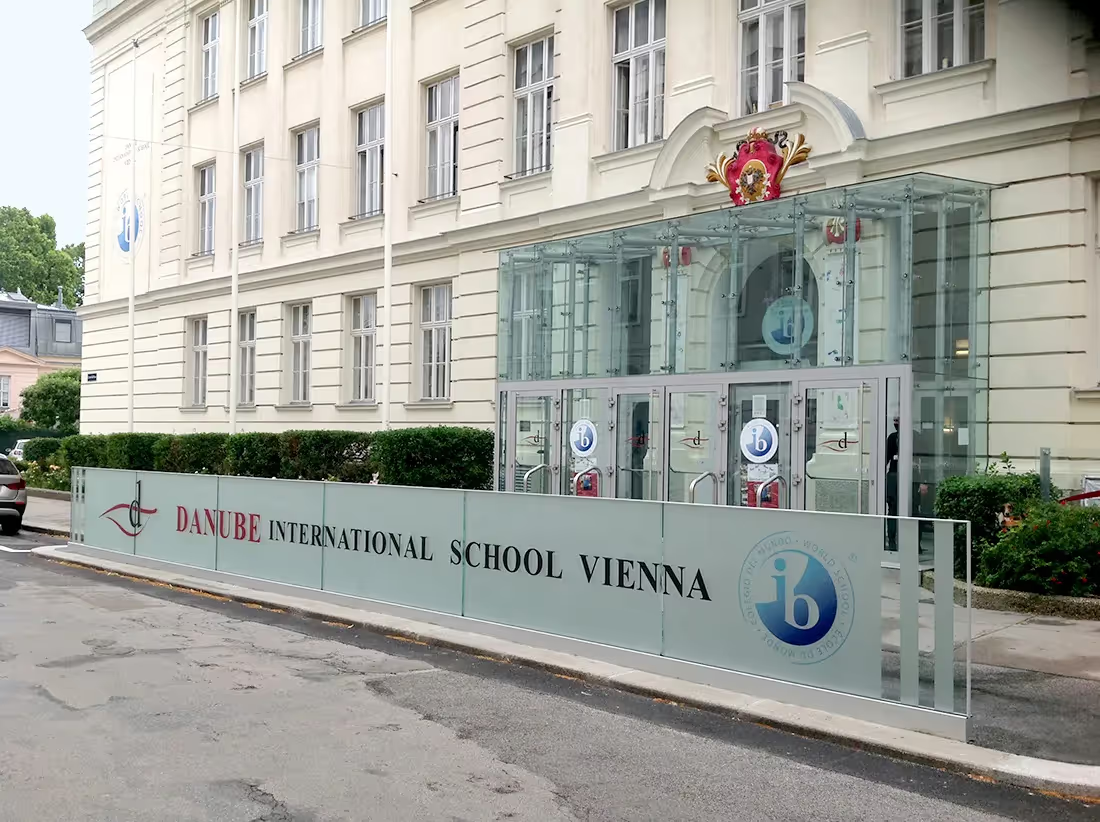
In 2022-2023, the school is being attended by 490 children of 64 nationalities, and the cost of tuition ranges from EUR 21,556 to EUR 27,706. This amount covers, among other things, textbook rental and consumables, school pictures, one gym kit (shorts/shirts), day and overnight trips, and extracurricular activities. Meals in the school cafeteria (at the request of the parents) are extra; the annual fee is EUR 778–1,304.
For the school year 2023-2024 the school fee will rise to between EUR 23,626–30,366. A discount of 2% will be given for full payment of the annual fee until 30th April 2023. There is also an application fee of EUR 300, an admission fee of EUR 4,200, a capital deposit of EUR 1,990 and a refundable security deposit of EUR 365. If your child's English needs improving, they can attend an additional language course for EUR 1,450 per semester. School lunches cost EUR 854-EUR 1,430 per year.
Danube International School Vienna also offers scholarships to students in grades 11-12, applications are accepted annually until March 1st. Scholarship holders do not pay tuition fees, but have to pay for IB exams (around EUR 850–900), trips, special equipment and other extra activities. Only those students who have demonstrated outstanding academic performance and who cannot afford to pay the school fees themselves are eligible for this scholarship.
American International School Vienna
The American International School Vienna (AISV) was founded in 1959 and offers an American educational system with an international focus, and the IB programme is available for grades 11-12. The school is attended by 800 students of 60 nationalities, ages 4–18.
Although classes are conducted in English, AISV is open to non-native speakers of English, as EAL (English as an additional language) classes are offered for 35-45 minutes each day during primary school. Students with intermediate language skills also receive help with learning English when they enter Year 7 or 8, but older students must demonstrate an advanced level. The school also offers a German language instruction for students of all ages, and French and Spanish from the seventh grade.
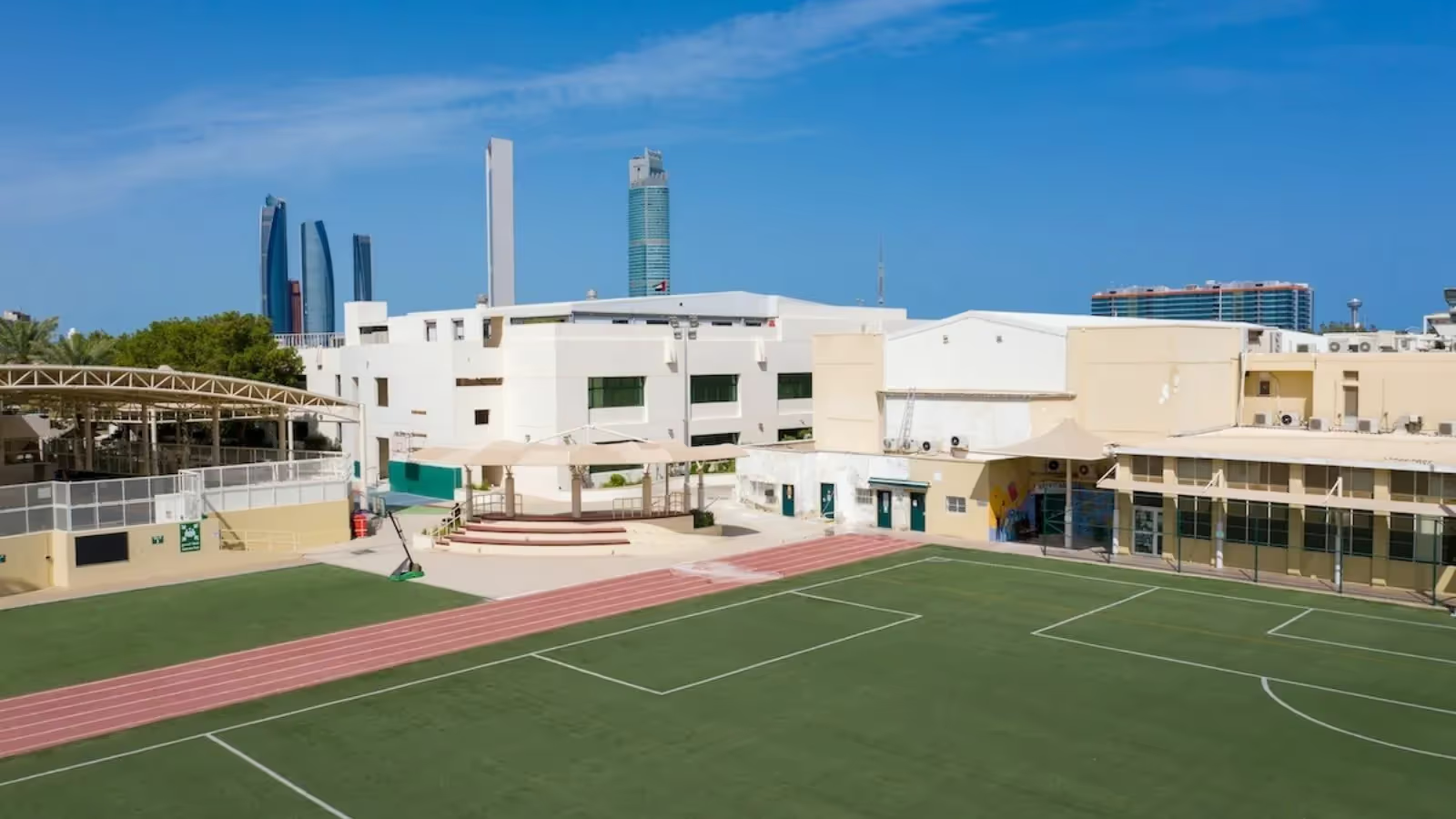
For the academic year of 2023-2024, tuition at American International School Vienna will range from EUR 20,677 to EUR 24,217. This fee includes a laptop that is provided to each student to use in lessons and for homework preparation.
The fees for meals and transportation are not included in the school fees, as school lunches and transfers are provided by outsourcing companies that invoice the parents themselves. There is also a non-refundable application fee of EUR 600 for enrolling and a reservation fee of EUR 3,000, as well as a one-time entry fee of EUR 3,300 and a capital fee of EUR 6,600.
Vienna International School
Vienna International School was founded back in 1955 and was awarded the status of the first international eco-school in Austria in 2017. It has around 1,400 students of 100 nationalities aged 3 to 19, from all over the world. Classes are taught in English, and German is also offered to all grades, as well as French or Spanish as a second foreign language that is introduced from the sixth grade.
For the school year of 2022-2023, the tuition fee (from primary school to grade 12) is EUR 20,304-24,012. Upon enrolment, a deposit of EUR 530, an enrolment fee of EUR 550, an entrance fee of EUR 4,990, a capital fee of EUR 4,280 (or EUR 2,990 for employees of the Vienna-based UN organisations (VBOs) or diplomatic corps) must also be paid.
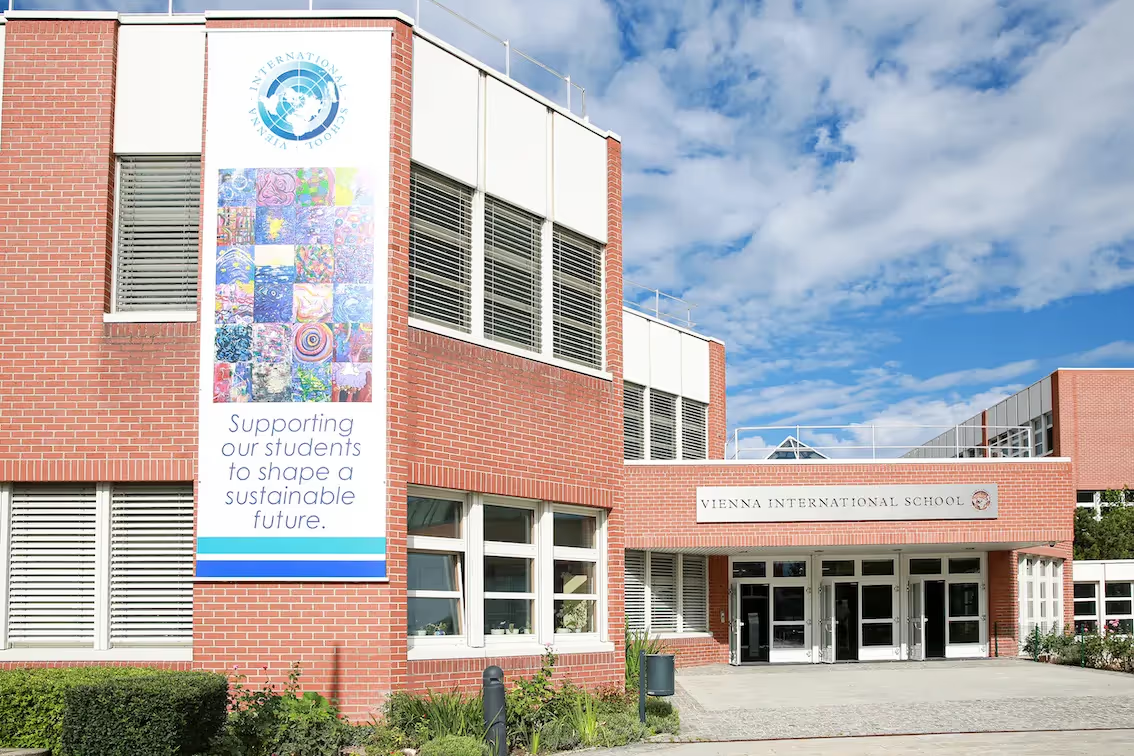
Additional expenses may also be incurred — if you wish to take an English Language Acquisition (ELA) course you have to pay EUR 710 per semester, and Learning Support Fees for children with special needs will cost EUR 545 per semester. If the child's parents work for the VBO or the Diplomatic Corps, they are exempt from these fees.
In 2023-2024, the tuition fee will increase to between EUR 21,912–26,988, and the deposit will cost EUR 575. The registration fee will also increase to EUR 600, as well as the admission fee at EUR 5,400 and the capital fee of EUR 4,620 (EUR 3,230 for employees of the VBO or the Diplomatic Corps). The ELA and Learning Support Fees will be EUR 800 and EUR 545 per semester. A fee of EUR 48,000 for individual tuition will also be introduced in the new academic year.
No financial aid or scholarships will be provided by Vienna International School. Parents must also make their own purchases of a study notebook for students in years 4 to 12.
Lycée Français de Vienne
Lycée Français de Vienne offers the French Ministry of Education programme (classes in French) and the Federal Ministry of Education, Science and Research of Austria programme (in German). The school has 1,850 students of 85 nationalities, aged 3–18. The annual fee for the academic year of 2022-2023 at the Lycée Français de Vienne is EUR 5,630, the boarding fee is between EUR 1,521–1,566 and the examination fee is EUR 35–250.
If several children from the same family attend the school, they can take advantage of a discount of 30% for the third child and 50% for the fourth and each subsequent child. Lycée Français de Vienne also offers various scholarships and support from its solidarity foundation for families in financial difficulties. For instance, the AEFE scholarship for French nationals will cover all tuition fees, board, examination fees and entrance fees.
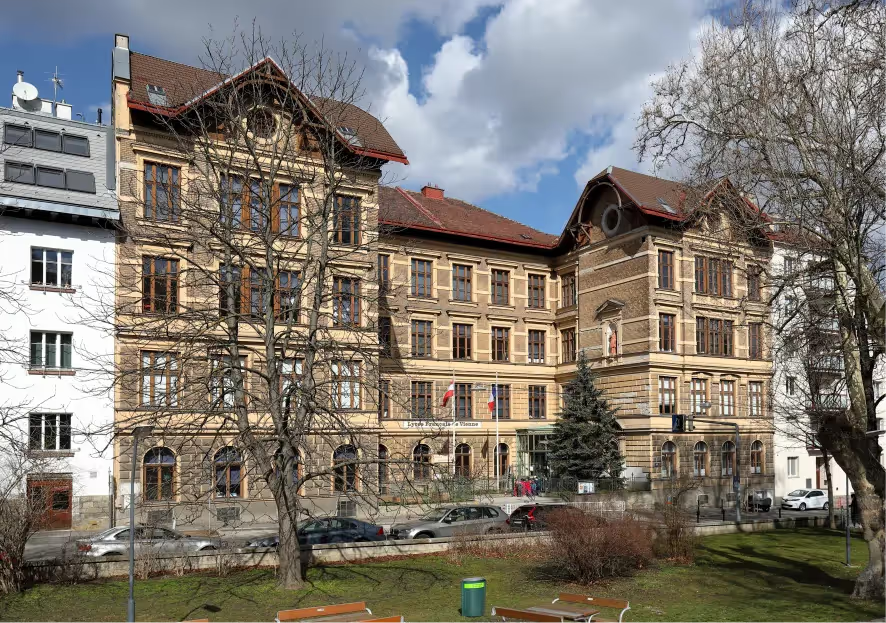
Higher education in Vienna: costs for foreigners in 2023
Public universities in Vienna offer free education for citizens of Austria, Switzerland and the EU countries. For full-time study students and those within the framework of exchange programmes, only have to pay about EUR 21 per semester for their membership in the student union, which also includes the accident insurance fee.
For enrolments from other countries, the average tuition fee is approximately EUR 727 per semester. Universities of Applied Sciences (UAS) set their own fees, which are normally EUR 363 per semester for EU and Swiss nationals and EUR 727–7,500 for other foreigners. Prices for private universities in Vienna for international students range from EUR 3,000 to EUR 23,000 per year on average, and some study programmes can cost more than EUR 35,000 per year.
Scholarships and Grants for foreigners at Universities in Vienna
In Austria, about 1,200 different scholarships and grants are available for foreign students (bachelors, masters, doctorates and researchers). These are mainly provided by the Austrian Agency for International Mobility and Cooperation in Education, Science and Research (OeAD), but also by various foundations and international organizations (UN, IAEA) or the universities themselves.
As a rule, a student must submit an application in order to receive such financial support. A list of available research grants and scholarships can be found on the website of Austria's largest database of scholarships and research grants for all academic fields at grants.at.
The number of scholarships and grants available depends on the future professional field. The most support options are available to students in fields such as chemistry, physics, biology and medical research, while humanities students have the least chance of becoming a scholarship holder.
Grants are often given for a specific period of time: for writing a research paper or for conducting research, while scholarships are given for 1-2 semesters. A scholarship may fully or partially cover the cost of tuition or work/research travel, in the form of monthly payments or as a lump sum for a specific purpose.
TOP 5 Universities for foreigners in Vienna
Our selection includes the largest public universities in Vienna, which offer a wide range of educational programmes and offer free tuition to a number of countries.
University of Vienna
The University of Vienna is a public university which has been operating since 1365 and is among the oldest and largest universities in Europe. It has about 89,000 students in 184 degree programmes (Bachelor's, Master's, Diploma and Doctoral). It is also the largest teaching university in Austria, offering 28 teaching subjects/specialties.
Approximately a quarter of the students at the University of Vienna are foreigners, with more than 2,700 exchange students accepted every year.
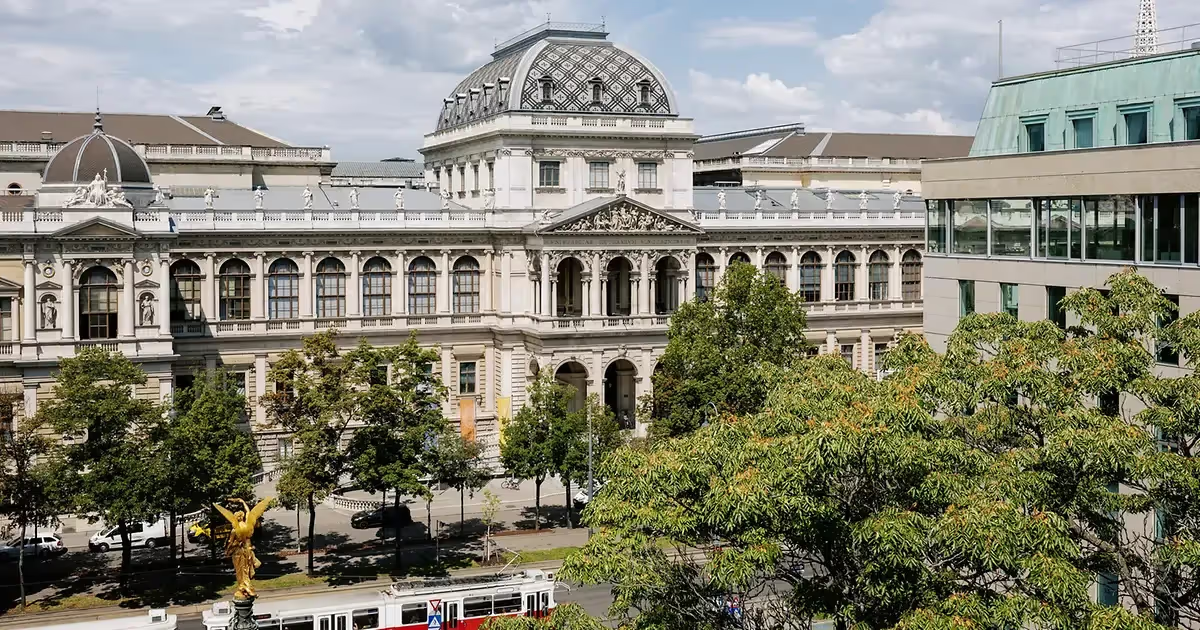
For EU/EEA/Swiss nationals, study is free of charge for the standard duration of the curriculum and 2 additional semesters. They only have to pay the student union fee of EUR 21.20. If a student needs more than two additional semesters, they have to pay EUR 384.56 for each of the semesters.
Those from other countries are required to pay EUR 747.92 (EUR 726.72 tuition fee and EUR 21.20 student union fee) per semester. Citizens of about 50 developing countries have exemptions from tuition fees — students from Afghanistan, Cambodia, Sudan, Ethiopia, etc. have the right to apply for the summer semester fee. In addition, citizens of Iran and Ukraine will not be charged tuition fees for the summer semester of 2023, they will only have to pay the student union fee.
Medical University of Vienna
Medical University of Vienna is the largest medical school in the German-speaking countries, and was founded in 1365 as a medical faculty of the University of Vienna. Since 2004, the university has operated as an autonomous university. The institution houses 30 university clinics, 2 clinical institutes, 13 medical theory centres and numerous laboratories. The University employs 6,000 staff and has 8,000 students.
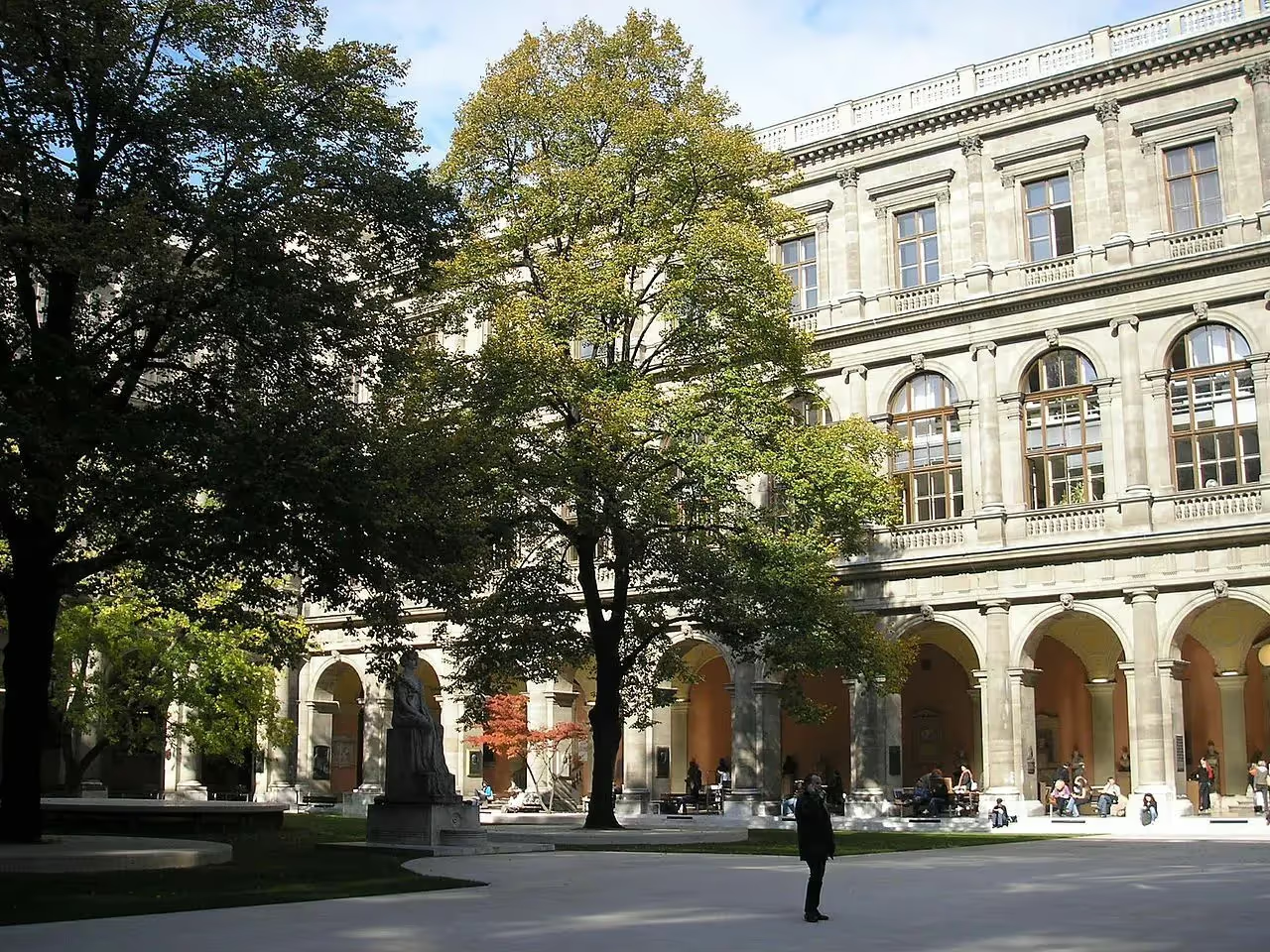
The tuition fee at the Medical University of Vienna is EUR 363.36 per semester for EU citizens and EUR 726.72 for international students. Along with the Student Union fee of EUR 21.20, the total cost per semester is between EUR 384.56 and EUR 747.92.
The fee for the entire standard period of study and two additional semesters is waived if:
- Master or postgraduate students, who are citizens of Austria and other EU countries, the EEA and the Swiss Confederation.
- Refugees who have been granted this status in accordance with the Geneva Convention.
- Beneficiaries of subsidiary protection.
- Third-country nationals who have been granted a residence permit of a certain type, including an EU permanent residence.
- Students with a residence permit status other than a student permit.
- Turkish citizens, if they reside with their parents in Austria or if their parents work/worked in Austria.
- Nationals of countries such as Afghanistan, Angola, Ethiopia, Bangladesh, Benin, Burkina Faso, Burundi, Bhutan, Djibouti, Eritrea, Gambia, Guinea, Guinea-Bissau, Haiti, Yemen, Cambodia, Kiribati, Comoros, Congo — Democratic Republic, Lao PDR, Lesotho, Liberia, Central African Republic, Chad, Madagascar, Malawi, Mali, Mauritania, Mozambique, Myanmar, Nepal, Niger, Rwanda, Solomon Islands, Samoa, Sao Tome and Principe, Senegal, Sierra Leone, Somalia, South Sudan, Sudan, United Republic of Tanzania, Timor-Leste, Togo, Tuvalu, Uganda, Vanuatu and Zambia.
Vienna University of Technology
Founded in 1815, the Vienna University of Technology is the largest research and education institute in Austria, specializing in engineering and science. It conducts research with 4,000+ scientists and has 27,000 students in 55 degree programmes.
Similar to other public universities, in the Vienna University of Technology, citizens of Austria and other EU countries receive education free of charge for a standard period of study and 2 additional semesters. If they exceed this period they have to pay EUR 363.36 per semester. For other students, the fee for each semester, starting from the first semester, is EUR 726.72. All students are also required to pay EUR 21.20 to the Student Union each semester.

Vienna University of Economics and Business
Vienna University of Economics and Business is the only university of economics and business in Austria and one of the top universities in Europe. The institution was founded back in 1898 and enrolls about 23,000 students from over 100 countries. The university has 720 researchers and lecturers with expertise in a wide range of fields, from business administration and economics to law, social sciences and languages. The university is accredited by the 3 core systems EQUIS, AACSB and AMBA, which confirms the high quality of its services. Only 72 business universities and business schools worldwide, which is less than 1% of all such institutions, are triple-accredited.
Vienna University of Economics and Business has the same fee system as other public universities in Austria — all students have to pay a membership fee to the student union, and non-EU citizens also have to pay EUR 726.72 per semester.
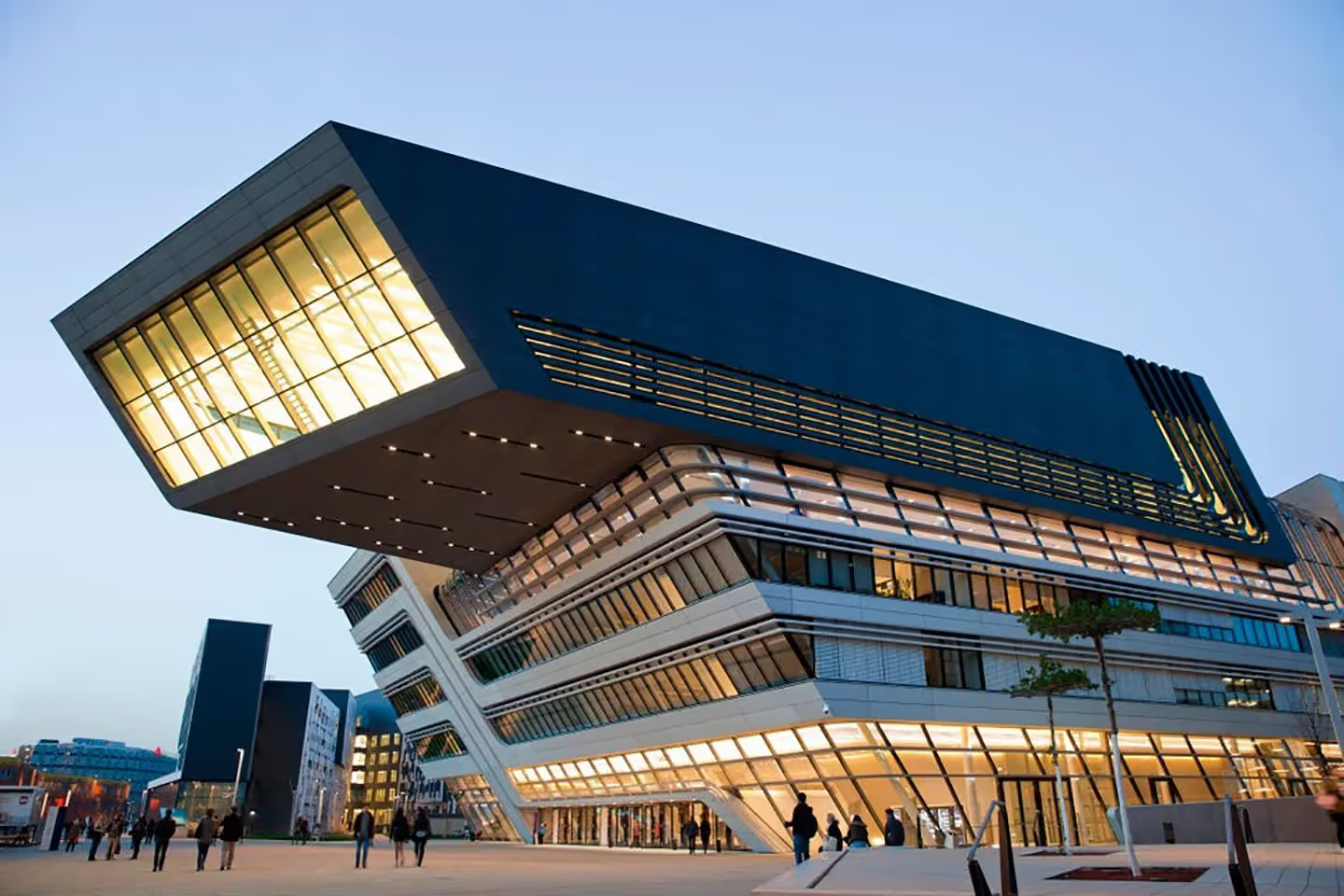
BOKU — University of Natural Resources and Life Sciences
BOKU is one of Europe's top universities specializing in the life sciences. Its history goes back to 1872, when it was founded as a small agricultural university. It now has 15 faculties with around 11,000 students.
Students from Austria and Switzerland, EU and EEA countries, refugees, students from all states with a non-student residence permit, as well as those from developing countries are exempt from the tuition fee. For all other students, the standard fee is EUR 726.72 per semester.
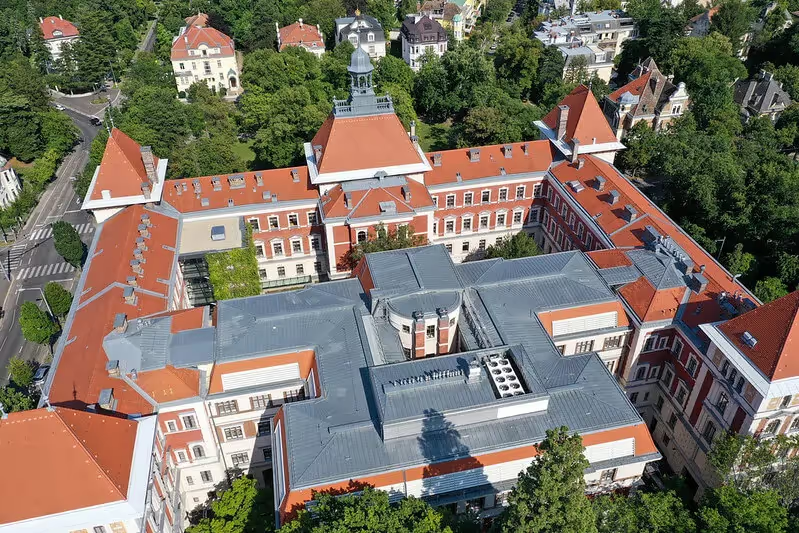
How we can help you
If you want to study in the Austrian capital or if you want to bring your family to Austria and provide your children with a high quality education, the first thing you should do is find a rental property or purchase an apartment in Vienna. The full-service real estate agency; Luxury Immobilien GmbH will help you to find a suitable apartment close to your future school or university that will fit your preferences and budget.
Our databases offer a wide range of housing in both new and secondary properties, including residences in historic buildings. If you require a mortgage, we can help you secure a loan from a local bank on favourable terms, as well as provide legal support and advice on any property-related matters.
Share your contact details, and we will happily assist you in finding your dream property






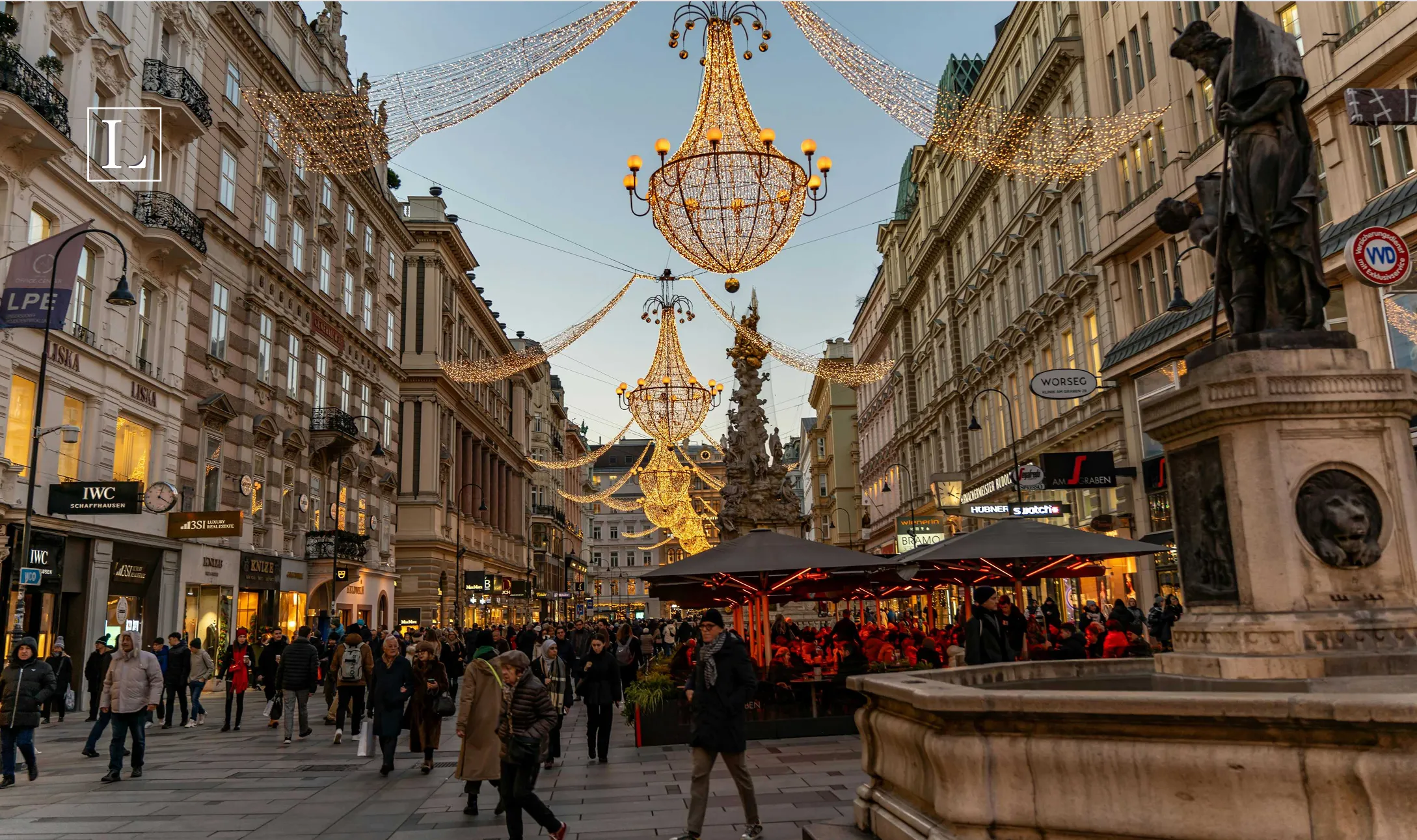
-p-2000.webp)
.avif)
%20(2).avif)





